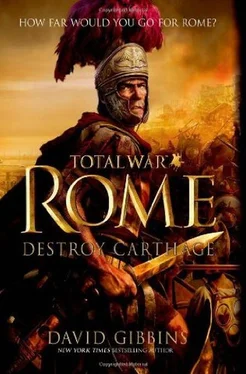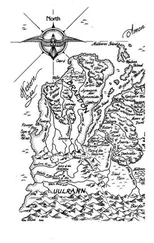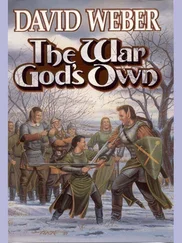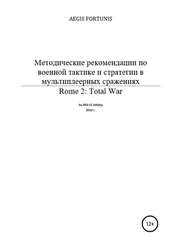David Gibbins - Total War Rome - Destroy Carthage
Здесь есть возможность читать онлайн «David Gibbins - Total War Rome - Destroy Carthage» весь текст электронной книги совершенно бесплатно (целиком полную версию без сокращений). В некоторых случаях можно слушать аудио, скачать через торрент в формате fb2 и присутствует краткое содержание. Год выпуска: 0101, Издательство: Thomas Dunne Books, Жанр: Исторические приключения, на английском языке. Описание произведения, (предисловие) а так же отзывы посетителей доступны на портале библиотеки ЛибКат.
- Название:Total War Rome: Destroy Carthage
- Автор:
- Издательство:Thomas Dunne Books
- Жанр:
- Год:0101
- ISBN:нет данных
- Рейтинг книги:5 / 5. Голосов: 1
-
Избранное:Добавить в избранное
- Отзывы:
-
Ваша оценка:
- 100
- 1
- 2
- 3
- 4
- 5
Total War Rome: Destroy Carthage: краткое содержание, описание и аннотация
Предлагаем к чтению аннотацию, описание, краткое содержание или предисловие (зависит от того, что написал сам автор книги «Total War Rome: Destroy Carthage»). Если вы не нашли необходимую информацию о книге — напишите в комментариях, мы постараемся отыскать её.
Total War Rome: Destroy Carthage — читать онлайн бесплатно полную книгу (весь текст) целиком
Ниже представлен текст книги, разбитый по страницам. Система сохранения места последней прочитанной страницы, позволяет с удобством читать онлайн бесплатно книгу «Total War Rome: Destroy Carthage», без необходимости каждый раз заново искать на чём Вы остановились. Поставьте закладку, и сможете в любой момент перейти на страницу, на которой закончили чтение.
Интервал:
Закладка:
Fabius sensed the army behind him, shifting, restless. He took a deep breath, tasting the acrid reek of smoke, the coppery tang of blood, feeling his veins engorge. He remembered what the old centurion had taught them. Scipio must not let his men see him hesitate. Fabius watched him grip his sword and look at Polybius, and then at Brutus. ‘Let’s finish it,’ he growled.
He began to run up the steps, sword in hand, his armour clanking, swerving to avoid the burning patches of naphtha from Ennius’ fireballs. Fabius followed, and he could hear Polybius and Brutus behind him, and the mass of legionaries surging forward to the base of the steps. He pounded forward, his teeth bared, every muscle and sinew in his body straining, the sweat spraying off his face. Time seemed to slow down, as if the weight of history were pulling him back, a history that had denied this day to Rome for so long. Then he was over the final step and on the temple platform, crouched in readiness with his sword forward, his chest heaving as he tried to catch his breath, hearing only the pounding of blood in his ears. He was beside Scipio, and could only see eight or ten paces ahead; the temple was obscured by a billowing plume of smoke that rolled off the platform to the north to join the pall that hid the city streets, making the group at the temple seem cut off and on their own, invisible to the thousands of legionaries below as they confronted the final nemesis of Carthage.
Polybius and Brutus came up on either side of him, breathing hard, catching their breath. ‘I can feel heat, coming from ahead,’ Polybius panted. ‘The temple must be on fire.’
‘I see nobody,’ Brutus growled, looking around.
‘He’s here,’ Scipio said under his breath. ‘Trust me. Keep alert.’
The four men stood in a semi-circle, their backs to the stairs, their swords held out as they stared into the smoke. Gulussa and Hippolyta joined them silently on either side, Gulussa with his whip coiled in readiness and Hippolyta with her bow drawn, a barbed arrow pulled back. They waited, hearing nothing, not moving. And then a sudden gust of wind blew the smoke aside and revealed the temple, its great stone columns soaring into the air some fifty paces ahead. Polybius had been right, but it was not the fireballs that had caused the heat. The temple was packed around with bundles of olive branches, just as the Tophet sanctuary had been. Hasdrubal had planned the suicide of his own city down to the last detail. Flames licked at the bundles between the columns, a crackling and hissing that soon became a roar. The doorway to the inner sanctum beyond the columns looked like the entrance to a furnace, an orange-red glow where the fire had already consumed the wood that had been rammed inside. Fabius put his hand up to shield his eyes, feeling the heat scorch his arm. He remembered being shown the place in the Phlegraean Fields where Aeneas had descended into the underworld. That had required imagination to envisage, but this needed none. This looked like the entrance to Hades.
The wind gusted again and he saw Hasdrubal, no more than twenty paces away to the left of the temple, a torch burning in a metal holder beside him. He was still wearing his lionskin, but it was smeared with blood; he stood with his feet planted firmly apart. Beside him was a woman with crudely cropped hair, her scalp blotched and bleeding and her clothing in rags, stooping over two small children. Hasdrubal held her by the nape of her neck and pushed her forward, his face contorted with rage and grief.
‘Scipio Aemilianus,’ he bellowed, his voice hoarse. ‘Look what you have done.’ He pulled the woman’s head up with his other hand to reveal her face. Fabius stared, and reeled. Even on this day of bloodletting, when he had watched their own legionaries being horribly mutilated on the parapet, he was not prepared to see a woman like this. Her eyes were gone, the sockets empty and red, the blood dripping down her face and spattering on the stone slabs in front of her. Fabius remembered the piercing shriek he had heard after the little boy had been sacrificed. This was the boy’s mother, Hasdrubal’s wife, and those were her other children. In her anguish she had not only ripped her clothes, and cut her scalp. She had torn out her own eyes.
Hasdrubal leaned forward, saying something to her, and then steered her between the two children, placing their hands in hers. He turned them towards the burning entrance to the temple. He pushed, and she stumbled, and then she started to run, dragging the children along. She shrieked as she passed through the columns with her children still beside her, their little bodies erupting like torches as they disappeared in the flames, and then they were gone.
Hasdrubal crouched forward, his huge arms bent in front of him, his fists clenched, and roared like a beast. He stayed there for a few moments, panting, staring at Scipio. Then he reached back and picked up a pottery amphora that had been lying behind him, smashed its neck and raised it up, his biceps bulging as he poured oil over his head, over the lion’s mane, until it was dripping and glistening. He tossed the pot aside, and then grasped the burning torch from the holder beside him. With both hands outstretched, he turned towards the mountain of Bou Kornine to the east, its twin peaks just visible over the pall of smoke, and closed his eyes. Then he turned back towards Scipio, roared again and dipped his head into the flaming torch, igniting his beard and the lion skin in a blast of burning oil.
Fabius again seemed to see movements happening slowly, as if in a dream. Hasdrubal crouched down, the flames sizzling over his head, his mouth wide open, the torch held out. He turned towards the temple and began to run, his huge legs pounding the stones, the flames from his head rising high above him as he picked up speed, a human torch rushing to join his wife and children in the underworld. At the last moment the torch tumbled from his hand and he disappeared into the burning temple, fire joining fire, and was gone from sight.
They all stood transfixed for a moment, staring.
‘It is finished,’ Brutus growled.
Polybius put a grimy hand on Scipio’s shoulder. ‘Thus ends Carthage.’
Scipio wiped the sweat from his eyes, blinking hard, still staring at the temple that had become a funeral pyre. Gulussa came up beside him, put one foot on the tip of his whip and shook the handle, lowering it as the whip coiled round into a tight bundle. He picked it up, stowed it into a pouch on his belt and sniffed the air, shading his eyes and peering to the south. ‘I can taste the desert in the wind,’ he said. ‘We should be wary of staying here too long. The wind is picking up and will carry with it much dust, and will fan the flames below.’
Polybius walked a few steps over to the north edge of the platform, and came back with a look of concern on his face. ‘It’s worse than that,’ he said. ‘Ennius warned me that the substance in his fireballs burns with such intensity that when the fires join together they create their own wind, and that in turn feeds the flames. The houses are mostly built of stone and mud brick, but the frames are timber and the fires are already leaping from house to house. When they reach the old quarter below us with all those bodies for fuel, the fire will burn even more ferociously. Ennius calls it a firestorm, and that’s what’s happening now. Our soldiers will have to be content with looting what they can find as they leave. We don’t have much time.’
Fabius glanced beyond the blackened façade of the temple and saw what he meant. It was a different kind of wind, a sucking, swirling motion in the smoke that seemed to tumble down the side of the platform like a whirlpool. Where it disappeared he could see a red glow in the city street as intense as the glow inside the temple; the leading edge of the fire was advancing along the street at frightening speed, engulfing more and more buildings as it went. Scipio turned to Gulussa and Hippolyta. ‘Go down and order the trumpeters to sound the retreat. The legions must evacuate the city immediately, marching back to the harbours. Send messages to Ennius and the naval commander to draw all ships further offshore. Brutus, join them.’
Читать дальшеИнтервал:
Закладка:
Похожие книги на «Total War Rome: Destroy Carthage»
Представляем Вашему вниманию похожие книги на «Total War Rome: Destroy Carthage» списком для выбора. Мы отобрали схожую по названию и смыслу литературу в надежде предоставить читателям больше вариантов отыскать новые, интересные, ещё непрочитанные произведения.
Обсуждение, отзывы о книге «Total War Rome: Destroy Carthage» и просто собственные мнения читателей. Оставьте ваши комментарии, напишите, что Вы думаете о произведении, его смысле или главных героях. Укажите что конкретно понравилось, а что нет, и почему Вы так считаете.












